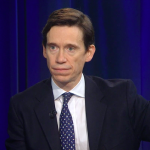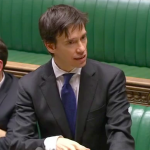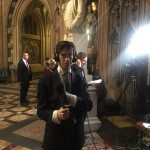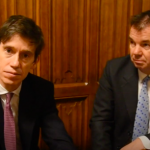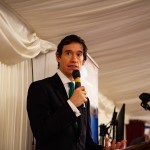Every day I am told that my support for Theresa May’s Brexit deal makes me a traitor to my constituents and the nation. Some messages are from members of the UK Independence party; about half are from Remain voters.
Each assumes they alone truly speak for “the people” and that only a knave, or a coward, could fail to implement their will. A Brexiter wrote: “There’s nothing remotely British about MPs who sell their country to a hostile foreign power, you lying treacherous remoaner scumbag.” A Remainer tweeted that I was a “belittling shit” who should be “first against the wall”.
Britain now stands divided: north against south, Scotland against England, old against young — with neither side taking seriously the other’s values or identity. The strongest argument for the Brexit deal is that it addresses these divisions.
It can only do so because it begins by acknowledging that — whether or not the referendum should have been held in the first place — every single MP, and the government itself, promised to uphold the result of the 2016 poll; and that 52 per cent voted Leave and 48 per cent Remain.
In rehearsing this, I will, of course, anger those who assert — partly on the grounds that the public was poorly informed, and that politicians are liars — that the first referendum was invalid. They also seek — in part because the public, if not politicians, has changed — to solve the problems of the first referendum by holding a second. But I believe they are underestimating the damage that a second referendum would cause.
Anyone supporting a second referendum is gambling on “no Brexit or no deal”. Either would be significantly worse for the losing side than Mrs May’s deal. If Remain won, the campaign for a third referendum would begin at once. Britain would limp back into the EU, seeking to return to the family halfway through the divorce proceedings, with the other member states and international investors pityingly aware that there was already a campaign to Leave once more, and with many new, more radical parties taking the argument to the streets under the banner of betrayal. Divisions would be deepened, not resolved.
Ambivalence about Europe reflects longstanding aspects of our political culture, which cannot be simply wished away. Britain must now take the time to examine honestly what relationship it wants and can sustain with Europe. It must do this not on the level of theory but in detail — discussing trade not simply as abstract “prosperity” but through analysing real car factories, safe levels of nitrogen dioxide emissions, and practical proposals on how to handle checks on rules of origin.
It must examine the composition, drivers and impacts of immigration in more than purely economic terms. And it must develop our diplomatic relationship with Europe, not through platitudes about values but through investigating real choices in places such as Turkey or the western Balkans.
All this work on the future relationship must be done in a decade in which the EU will itself be integrating or unravelling in unpredictable ways. And the best place from which to do this (in part out of respect for Europe itself) is in a relationship that is close to Europe, without being in the EU.
Hence, the prime minister’s deal, which acknowledges the outcome of the referendum by withdrawing from EU political institutions, and which acknowledges that most Leave voters expected to end free movement of people (which makes a pure “Norway” option impossible). The deal also addresses the concerns of the 16m who voted Remain by retaining deep links to European markets and continuing to work very closely with European nations, from the frontiers of science to the frontiers of Russia.
This is why — even if the prime minister loses the “meaningful vote” in the House of Commons on Tuesday — we ultimately have to keep returning to something almost indistinguishable from her deal. Most of the “alternatives” floated in parliament claim, like hers, to represent the middle ground; but, unlike hers, they are only broad guesses about what could be negotiated with the EU, whereas hers is an actual agreement that has been reached after two years and many thousands of hours of practical negotiation.
A Brexit deal will never please those who want no Brexit or no deal. But this must be the most pragmatic and moderate response to a deeply polarised nation, to an uncertain geopolitical future and to fundamental features of our national culture. This is why I remain convinced that logic will prevail.
It may do so in the end through parliamentary arithmetic. But the result will neatly, if inadvertently, reflect much deeper British traditions of pragmatism and compromise, and a justified and longstanding suspicion of neat, but divisive, solutions.




